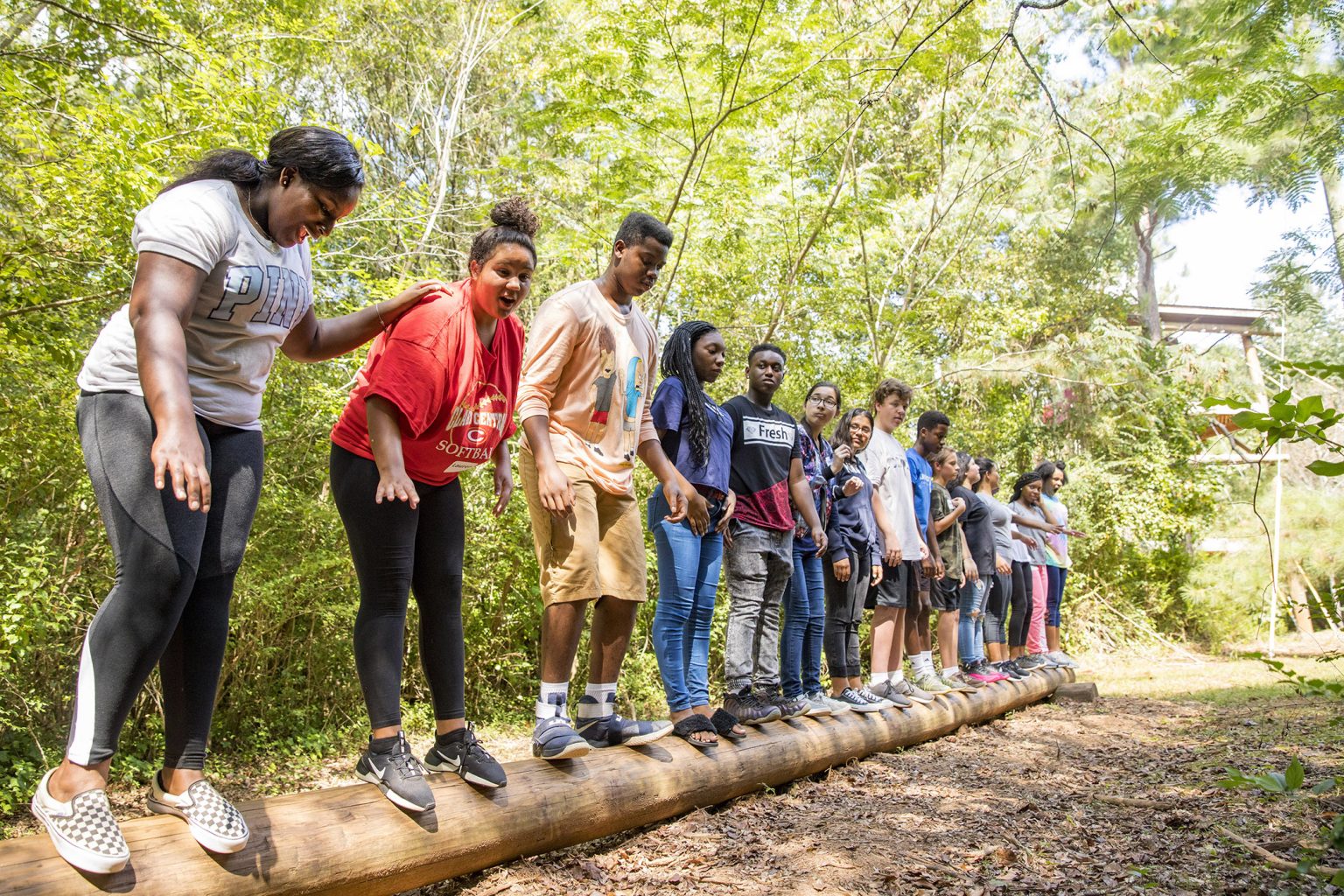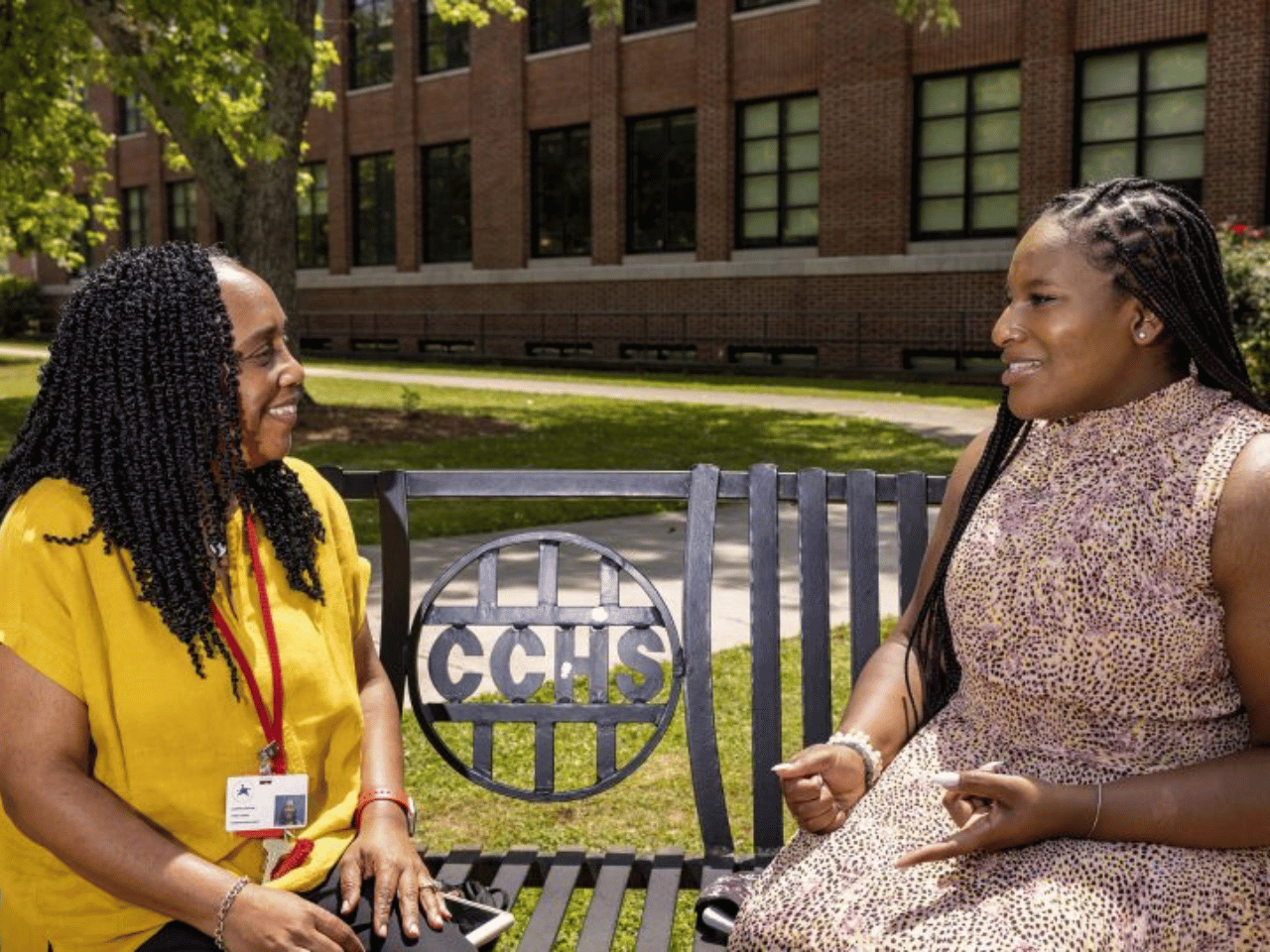UGA program helps Clarke County students develop leadership skills, career interests
by Hayley Major
Since she was 2 years old, Tiffani Richardson has had her sights set on becoming a medical professional. Whether an obstetrician, a registered nurse or what her younger self called a “baby doctor” (pediatrician), UGA’s Georgia Possible program is giving her the tools and skills to turn her lifelong dream into a career.
Richardson, a rising senior at Clarke Central High School, has been involved with Georgia Possible since she was a freshman. As part of the pilot cohort, she and 40 other Clarke County School District students from both Clarke Central and Cedar Shoals high schools receive hands-on, personalized training and resources to help prepare them for life after high school.
For Richardson, the experience has been one of personal growth.
“I used to be really shy,” she said. “Georgia Possible is student led, so they give us time to get up in front of each other and talk. It’s brought me out of my shell, and it’s something I can put on my resume.”
Tailored programming and impact
Georgia Possible offers leadership development and career readiness programming to CCSD high school students through a collaborative campus effort, spearheaded by the Office of the President, Office of the Vice President for Public Service and Outreach, Office of Government Relations and the Office of Institutional Diversity.
The program has not only given Richardson confidence, but it’s also paved the way for her to excel academically. This year, she joined the National Honor Society, a nationwide organization that recognizes students who demonstrate strong leadership and service skills while maintaining a cumulative GPA of B or higher.
“I want to be a well-rounded student,” she said. “I don’t know what college I want to go to right now, but I do know that I want to apply to at least 30 schools.”
She has been highly involved at Clarke Central, participating in marching band, color guard and JROTC, while also taking advanced science courses like human anatomy. Georgia Possible builds on these experiences and interests to help students like Richardson develop soft skills they can take with them after high school, whether that’s to college, to the workforce or to the military.
“We hope that Georgia Possible provides these students the confidence and the efficacy to take advantage of other opportunities that they might not have before,” said Lauren Healey, a public service associate with the UGA J.W. Fanning Institute for Leadership Development and program manager for Georgia Possible.
Tonia Jones, a graduation coach at Clarke Central, has witnessed the program’s impact firsthand.
“Just seeing Tiffani beaming—that is truly what Georgia Possible is all about,” Jones said. “I’m so proud to see how far she and the other students have come, from ninth grade until now. It’s all about the exposure for our kids to experience things they may not have had the opportunity to otherwise.”

Tiffani Richardson, left, participates in the Georgia Possible outdoor challenge course with other Clarke County students in 2018. (Photo by Dorothy Kozlowski/UGA)
In their first year, Georgia Possible students participated in activities to better get to know themselves and one another, including a ropes course and on-campus tours. During the second year, the program offered academic opportunities and career exploration activities, which included taking the PSAT and shadowing a variety of industry experts in their respective fields.
“Leadership and communication skills are critical for success in postsecondary education and in the 21st century workforce,” said Matt Bishop, director of the Fanning Institute. “We are proud to see this partnership with the Clarke County School District help develop and empower local students with the skills and confidence to take ownership of their futures and their community’s future.”
Adapting and moving forward
When the pandemic shut down in-person programming for the 2019-2020 academic year, the high school students’ need for connection and support was vital. Georgia Possible coordinators continued reaching out to them through bimonthly emails and resource sharing to keep them on track and engaged.
For Richardson, that contact not only helped her stay focused as she prepared for her senior year, but it also reminded her that she still had the support of the university behind her.
“This program has shown me that UGA is much more than just an option for college,” Richardson said. “They reach out, they help people and they’re trying to get students involved to experience new things and new perspectives.”




